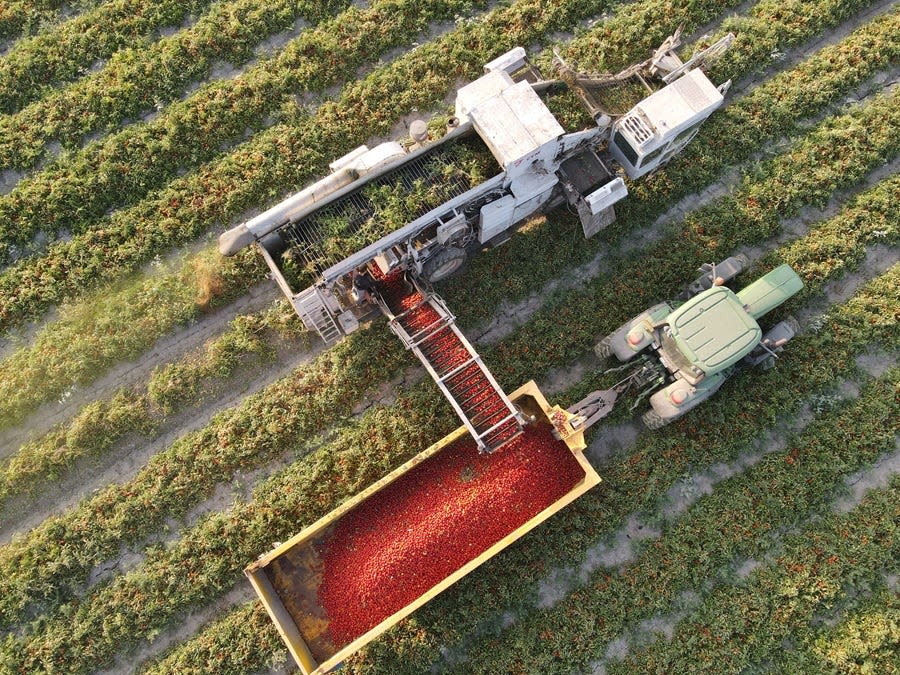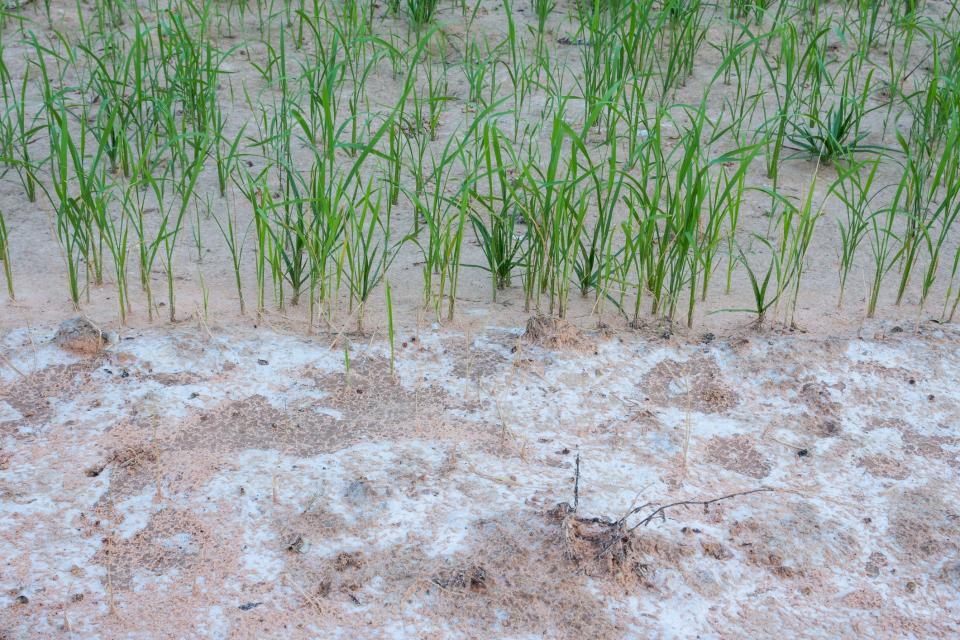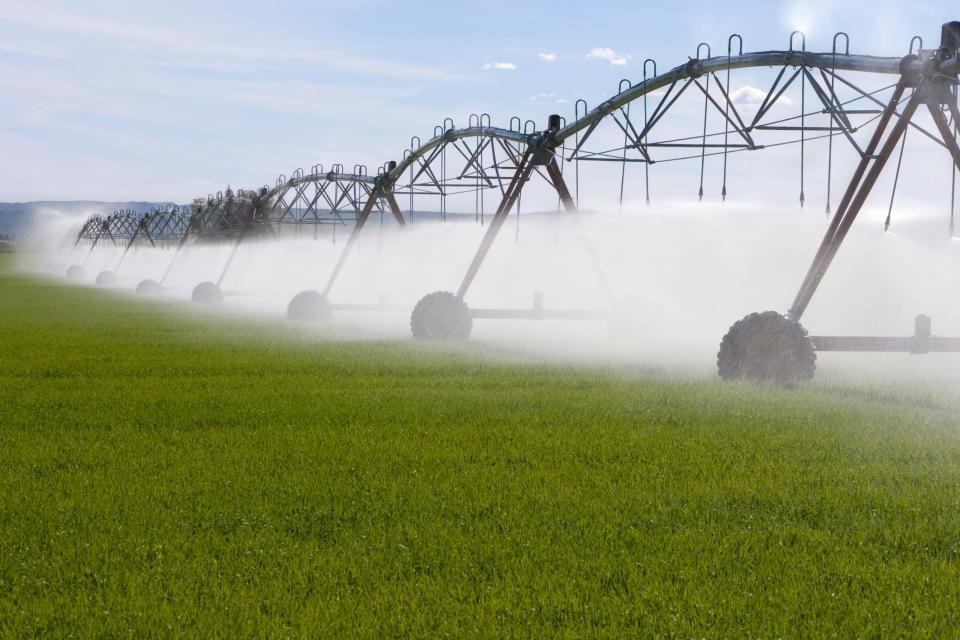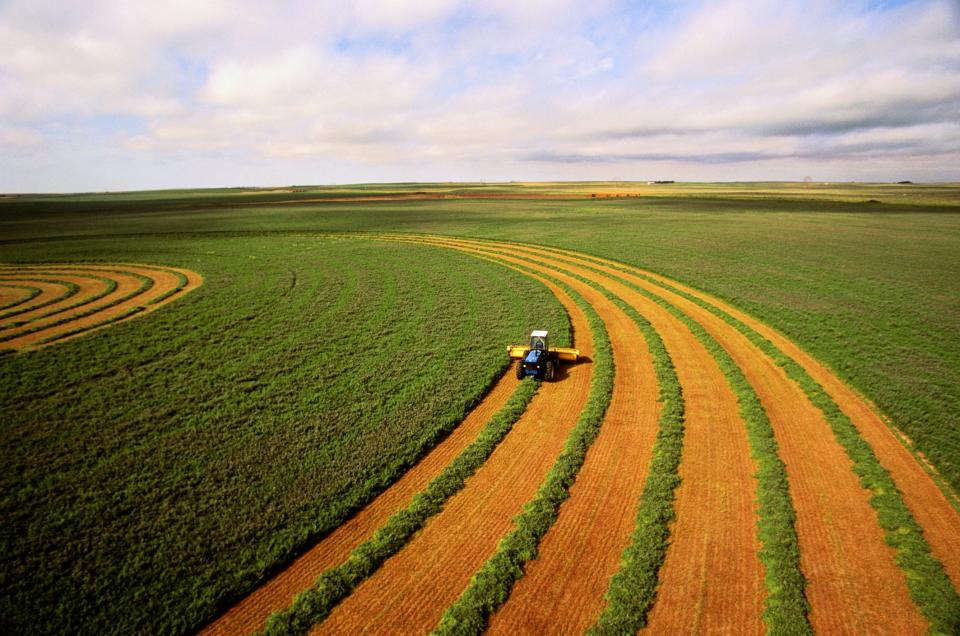-
An ag-tech company has developed an army of resilient crops by growing them in salt water.
-
These crops survive best on salty soils, which is a growing problem in our warming world.
-
Salt-rich soil affects over two billion acres worldwide, reducing the yields of crops that people depend on.
Salt is bad news for most crops, but not for a series of tomatoes, alfalfa, onions, and rice growing in a laboratory in Israel.
These crops are the non-GMO brainchild of Ṛcā Godbole, molecular plant biologist and co-founder of SaliCrop. And they don’t just grow, they thrive in salt water.
For the past four years, SaliCrop has been testing its improved seed technology on tomatoes in southern Spain, where a devastating drought has triggered severe salinization, the process by which soils become too salty for crops to grow effectively.


However, with SaliCrop seeds, participating tomato farmers have seen a 10% to 17% increase in crop yields, earning them an additional $1,600 per hectare, SaliCrop CEO Carmit Oron told Business Insider.
Spain is just one of many places in the world that has a serious salinization issue. A perfect storm of irrigation for decades, warming global temperatures, and rising sea levels have made 20% to 50% of irrigated soils worldwide too saline to be fertile. This costs the global economy an estimated $27 billion per year in lost crops.
Meanwhile, the number of mouths to feed continues to increase and the global human population is expected to reach nearly 10 billion by 2050, according to the United Nations. “How do we grow more on lands that are becoming degraded? This was the main question and motivation to establish SaliCrop,” said Oron.
Godbole founded SaliCrop with Sharon Devir, an agricultural engineer, who has a big mission: To help farmers face the challenges of our rapidly changing world and prevent hunger for billions of people there.
“We believe this solution is necessary,” Devir told BI.
SaliCrop saltwater success
Scientists at SaliCrop are developing an army of resilient crops that can grow under the stresses of our changing world, such as saltier soils and warmer temperatures.
Salt occurs naturally in soils everywhere, but too much of it can make it harder for plants to absorb water and nutrients, stunting their growth, reducing crop yields, and threatening global food production .


Across the globe, more than 1.5 billion people live with soils that are too salty to grow crops effectively. And it is predicted to only get worse.
In India, for example, 44% of the land is already saline, and researchers estimate that salinization will affect 50% of the country by 2050.
The problem that farmers around the world cannot escape is warmer average temperatures, which accelerate evaporation in the soil, concentrating the salt in that soil – especially in arid regions.
Flooding from rising sea levels is also a threat, especially to coastal farmland, as it leaches more salt into the soil and groundwater. Poor irrigation practices, such as not applying enough water, using saltwater, and not maintaining adequate drainage, can lead to salty soils.


To help farmers tackle all these factors, SaliCrop is working to bring its solution to eight different countries, and is already fielding calls from seed companies in Europe, India and Africa who are seek immediate solutions to improve their crops, Oron said.
“Plants have certain stress-inducible environmental genes that act as internal alarms,” Godbole explained in a press release. “When there is too much salt, or too much heat, these alarms go off and the plant goes into defense mode.”
Godbole found a way to harness those warning bells by exposing plants to stress early in their growth cycle. In this case, that means irrigating crops with salt water in their lab. That way, when planted in saline soil, the crops already have their defenses, making them less sensitive to saline conditions.
Based on their test data, this strategy cuts crop losses due to stress in half, and it only takes about a year to achieve that result, Devir said.
“We calibrate our technology for each crop, each species, and even each batch of species,” said Devir. This allows them to precisely target the best resilience response and maximize yield for each crop type.
Seeding the future with non-GMO crops
“We believe it will be a matter of a year or two until we have a global footprint with our solution,” said Devir. So far, SaliCrop is working with farms 25 acres to 250 acres in size. Worldwide, more than 3,700 acres—just over four times the size of NYC’s Central Park—of farmland grow Salicrop seeds.


But SaliCrop is not the only company focusing on a non-GMO solution. Red Sea Farms, for example, is a Saudi Arabian company that uses selective breeding to grow crops that can be irrigated with salt water. In Sweden, a company called OlsAro is growing salt-tolerant wheat by using AI to select traits that improve its resilience.
Worldwide, up to 783 million people are chronically hungry. The UN has set an ambitious goal to end hunger by 2030, but it will require innovative solutions to improve agricultural productivity in the face of climate change.
Resilient non-GMO crops are one possible answer. “SaliCrop is a good example of how you can give the world a cheap, reliable solution without any negative impact on the environment, but to produce more food,” said Devir. “We believe in it.”
Read the original article on Business Insider